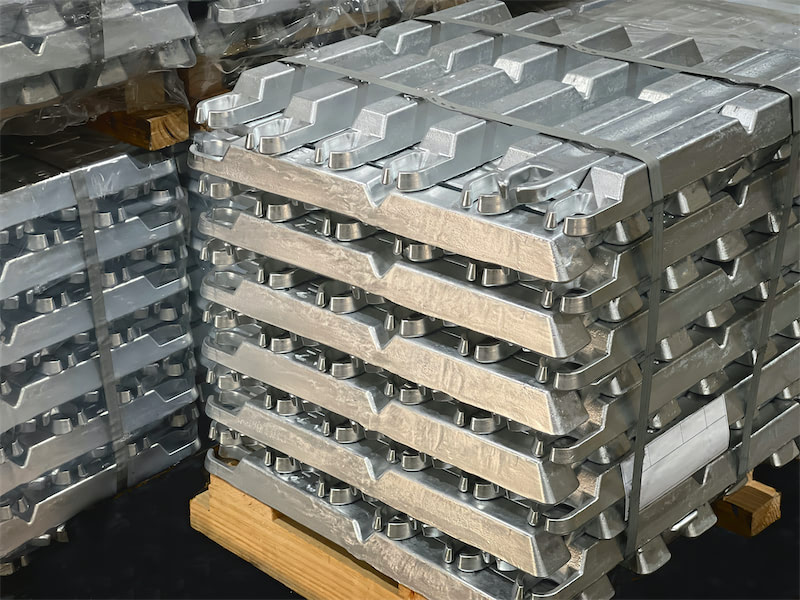Forecast for Next Week: Ferrous Trading Logic Returns to Fundamentals, Short-Term Rangebound Fluctuations Expected
This week, ferrous metals first declined then stabilized, with coking coal and coke providing support. In the first half of the week, rumors of production restrictions and maintenance at some steel mills in north China persisted, coupled with the exhaustion of earlier expectations, causing market logic to revert to reality; active bearish capital led to a pullback in futures. In the latter half of the week, fundamentals showed continued inventory drawdowns for the five major steel products, while coking coal and coke stopped falling and rebounded, providing support for steel prices and stabilizing ferrous metal prices. In the spot market, some arbitrage funds are still seeking entry opportunities, but as November progresses, off-season performance in end-user demand is beginning to emerge.
Short-term, according to the SMM survey and tracking, the daily average hot metal output increased by 800 mt WoW. However, due to losses and environmental protection considerations, some steel mills still face the possibility of additional maintenance, which will limit the extent of the short-term recovery in hot metal production. Nevertheless, considering the support from coking coal costs and the plan for a fourth round of coke price increases, support from the raw material side remains. For steel products, while inventories of the five major steel products continue to draw down, off-season demand performance is evident, and hot rolled coil production remains high, putting overall fundamentals under pressure. Overall, short-term market trading logic has returned to fundamentals. Demand for finished steel will continue its off-season performance, but further compression of steel mill profits and new maintenance plans at mills in Shanxi and other regions mean subsequent focus will be on supply-side contraction. Ferrous metals are expected to maintain a rangebound, fluctuating trend next week, with hot rolled coil performance likely weaker than that of construction steel.
Iron Ore: Deteriorating Fundamentals to Suppress Domestic and Imported Ore Prices Simultaneously
Iron ore prices fell significantly this week, mainly due to the fading of speculative sentiment after the implementation of macro policies, with price logic returning to fundamentals. Affected by environmental protection-driven production restrictions in north China, the operation of sintering machines and shaft furnaces faced constraints, leading to weak purchase willingness among steel mills. Port pick-up volume remained persistently low, port inventories accumulated at an accelerated pace, further increasing downward pressure on ore prices. Additionally, the implementation of the third round of coke price increases exacerbated steel mill losses, prompting an increase in blast furnace maintenance plans and boosting bearish market sentiment, collectively driving ore prices lower. The decline in port spot prices was less pronounced than in futures; the weekly average price of PB fines at Shandong ports fell by 18 yuan/mt WoW. Looking ahead to next week, environmental protection-driven production restrictions in Hebei are expected to end soon, and some blast furnaces are anticipated to gradually resume production. However, due to multiple factors including heating season production restrictions, policy-controlled output, intensified steel mill losses, and annual routine maintenance, the number of blast furnace maintenance projects nationwide is expected to continue increasing, and daily average hot metal output may decline further. Imported ore prices are forecast to continue a weak, fluctuating trend next week. The tight supply situation for domestic iron ore concentrates persists, and the decline in domestic ore prices next week is expected to be smaller than that for imported ore.
Coke: Mainstream Coke Producers Initiate Fourth Round of Price Increases; Market Expected to Hold Up Well Next Week
Key Points: On the news front, mainstream coke producers initiated the fourth round of price increases for coke, with the increase amounting to 50-55 yuan/mt, effective from 00:00 on November 10. Supply side, mainstream steel mills accepted the third round of coke price increases, leading to improved profits for coke producers. However, coking coal prices are still expected to strengthen. Facing cost pressure, most coke producers maintained previous production restrictions, making it difficult to quickly improve the tight supply situation. Demand side, end-use market demand for steel products performed poorly, leading to increased maintenance and production restrictions at steel mill blast furnaces. Rigid demand for coke pulled back slightly. However, downside room for daily average hot metal output at steel mills is limited, and coke inventory at some mills dropped slightly. Short-term focus is on restocking, providing support for coke demand. Raw material fundamentals, coal mines strictly control overproduction, safety and environmental protection inspections are stringent across regions, and coking coal supply remains tight. Downstream players actively restocked, putting coal mines in a destocking state with positive market sentiment. The coking coal market is expected to hold up well next week. In summary, the coke market is expected to continue holding up well next week.
Steel Scrap: Dual Pressure from Supply and Demand Makes It Difficult to Reverse the Weak Price Trend
Recently, steel scrap prices have been in the doldrums. Supply side, influenced by the weak performance of rebar futures, market bearish sentiment intensified. Bases and traders accelerated their shipping pace to avoid risks, pushing up arrivals of steel scrap at mills. Demand side, finished product sales showed mediocre performance and costs remained high, pushing some steel mills into losses on production. Against the backdrop of increasing operational pressure, mills significantly strengthened control over purchase prices for raw materials like steel scrap. Overall, the current steel scrap market faces dual pressures from relatively loose supply and weak downstream demand. Therefore, before steel mill profits show significant improvement, steel scrap prices are expected to remain under pressure.
Rebar: Expectations of Further Supply Reductions; Inventory Pressure May Limit Price Increases
This week, rebar prices were in the doldrums, with the current nationwide average price at 3,078 yuan/mt, down 30 yuan/mt WoW. Supply side, approaching year-end, some steel mills have successively commenced annual maintenance on blast furnaces and rolling lines. Amid production losses, manufacturers accelerated the pace of halting or cutting production of construction materials. Furthermore, mills producing multiple varieties continued to prioritize producing high-margin variety products, leading to a significant decline in the planned production of construction materials for November. Additionally, EAF steel mills faced significant losses, further compressing operating hours, and are expected to maintain low-to-medium production levels until year-end. Demand side, demand in the north weakened noticeably compared to earlier periods, while transactions in other regions were constrained by rainy weather, resulting in overall demand release falling short of last week's level. Inventory side, mill and social inventories continued destocking, but inventory pressure remained higher than the same period in previous years. Particularly, inventory pressure in some markets increased rather than decreased, which is unfavorable for stabilizing bottom prices. Looking ahead, cost-side support remains strong as the fourth round of coke price increases was initiated on the raw material side. However, finished steel trading has returned to fundamentals, putting upward pressure on spot prices and further squeezing steel mill profits. Supply-side pressure has yet to ease. Approaching year-end, seasonal weakening in demand is expected. If the pace of inventory reduction falls short of expectations, it will weigh on short-term spot price trends. Spot prices are expected to move sideways next week, with no clear trend emerging.
Hot-Rolled Coil: Weaker Demand in Off-Season, Prices May Fluctuate Downward Next Week
Hot-rolled coil prices were in the doldrums this week, with overall trading activity weakening. Supply side, steel mill profits remained under pressure, but some mills completed maintenance on hot-rolled production lines, leading to an increase in hot-rolled coil output. Demand side, market demand performed relatively well this week, with weekly apparent consumption of hot-rolled coil continuing to rise. Inventory side, social inventory of hot-rolled coil in 86 warehouses nationwide (large sample) as surveyed by SMM totaled 4.4038 million mt, down 8,600 mt or 0.19% WoW. National social inventory began to decline this week. By region, destocking occurred in most markets except North and Central China, where slight inventory buildup continued. Cost side, the third round of coke price increases was implemented this week, while iron ore prices dropped slightly, strengthening overall cost support for hot-rolled coil. Looking ahead, the fourth round of coke price increases is less likely to be implemented next week and may be postponed. Iron ore prices are expected to continue falling, leading to a slight decrease in hot-rolled coil costs. Coupled with weakening demand in the off-season, hot-rolled coil prices may fluctuate downward. The most-traded contract is expected to trade in the range of 3,190-3,270 next week.
1. For data mentioned in the report, please visit the SMM database (
2. For more SMM steel news, analysis reports, databases, etc., please contact Li Ping from the SMM Steel Department at 021-51595782.
*The views in this report are based on market information and comprehensive evaluation by the SMM research team. The information provided is for reference only, and investors assume their own risks. This report does not constitute direct investment advice. Clients should make decisions prudently and not use this report as a substitute for independent judgment. SMM is not responsible for any decisions made by clients. Additionally, SMM is not liable for losses or liabilities resulting from unauthorized or illegal use of the views in this report.
SMM reserves the right to modify and ultimately interpret the terms of this statement.
![Before the holiday, the black chain is unlikely to see a trend-driven market [SMM Steel Industry Chain Weekly Report].](https://imgqn.smm.cn/usercenter/zUFfM20251217171748.jpg)

![The Most-Traded SHFE Tin Contract Opened Lower and Then Traded Stronger, Spot Market Recovers Amid Downtrend [SMM Tin Midday Review]](https://imgqn.smm.cn/usercenter/WWXJU20251217171753.jpg)
